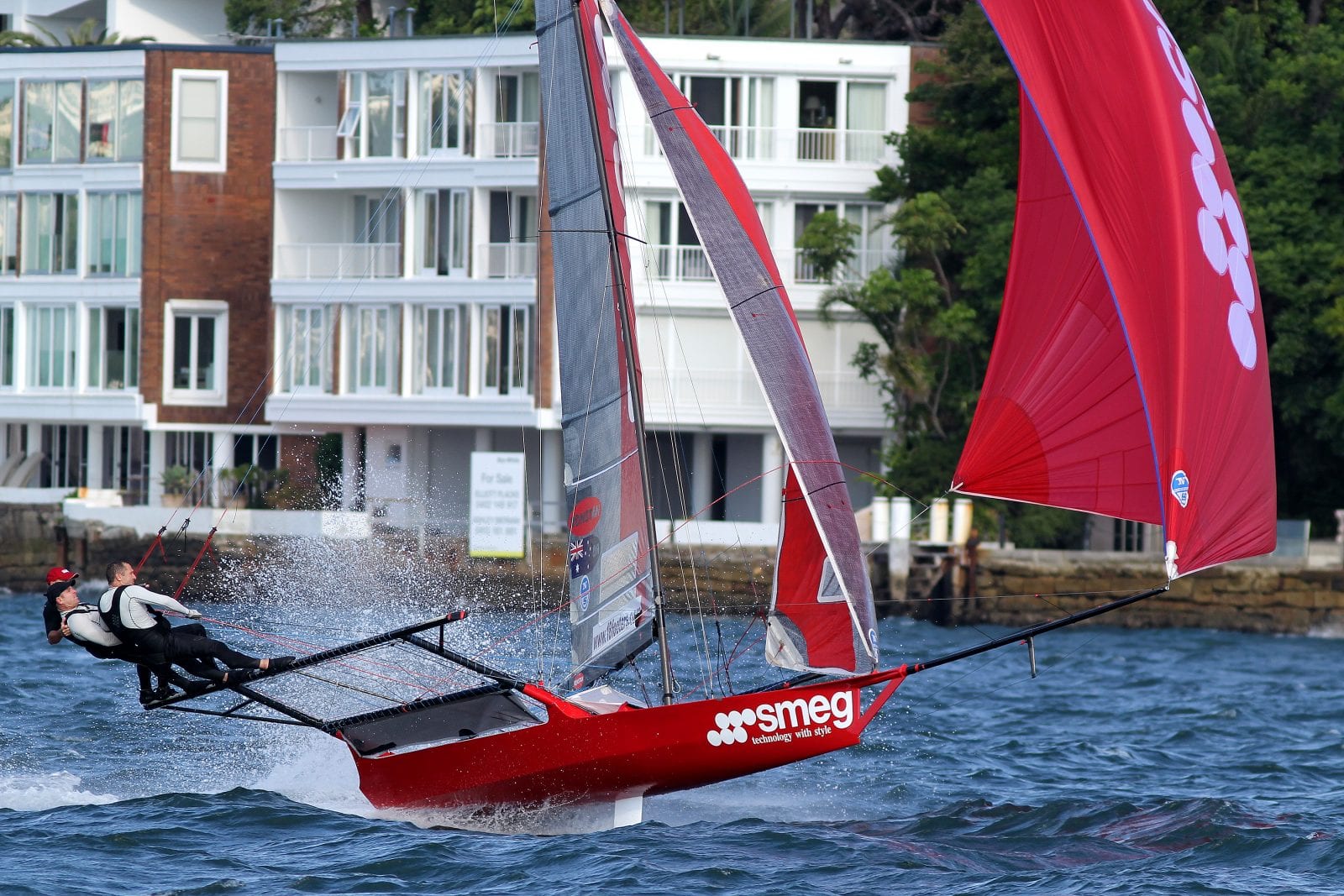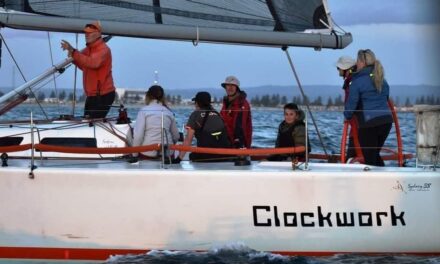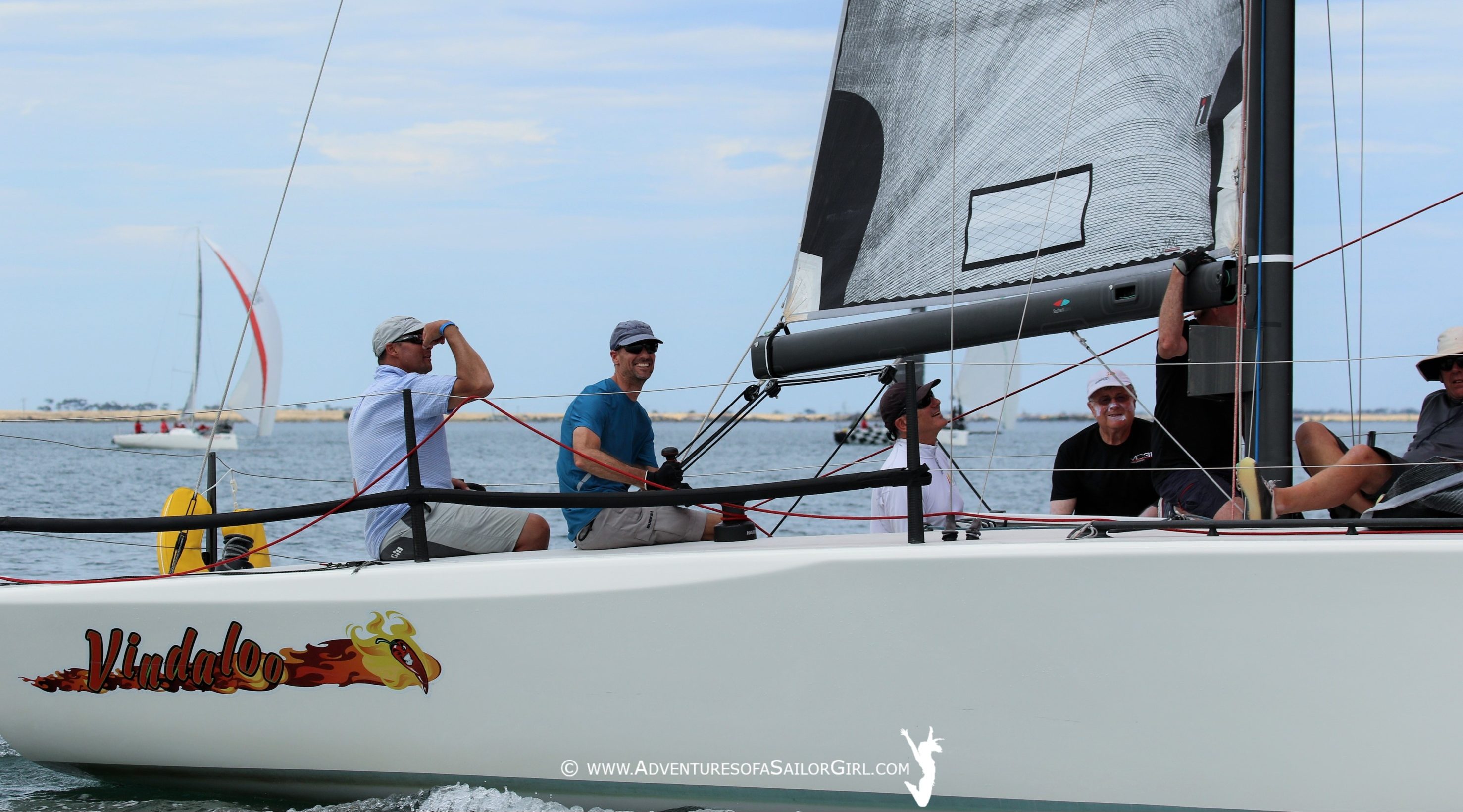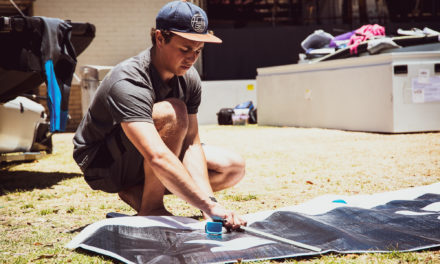With thunderstorms, rain and a lack of stable wind no racing was conducted in any classes today.
We took the opportunity to catch up with Australian Coach Mitchell Kennedy from Queensland on how the Australian team are preparing for the World Championships and how that plays into the greater Paris 2024 journey.
“With the World Championships coming up later this month in Adelaide, there’s been a big push for the boys to spend more time down here. So I know the last 12 months the guys have been putting in some solid hours just to know the venue better. So, you know, home worlds, there’s a bit of pressure to do well. So the better that they can know the venue and the trends, the better they should do with the results”
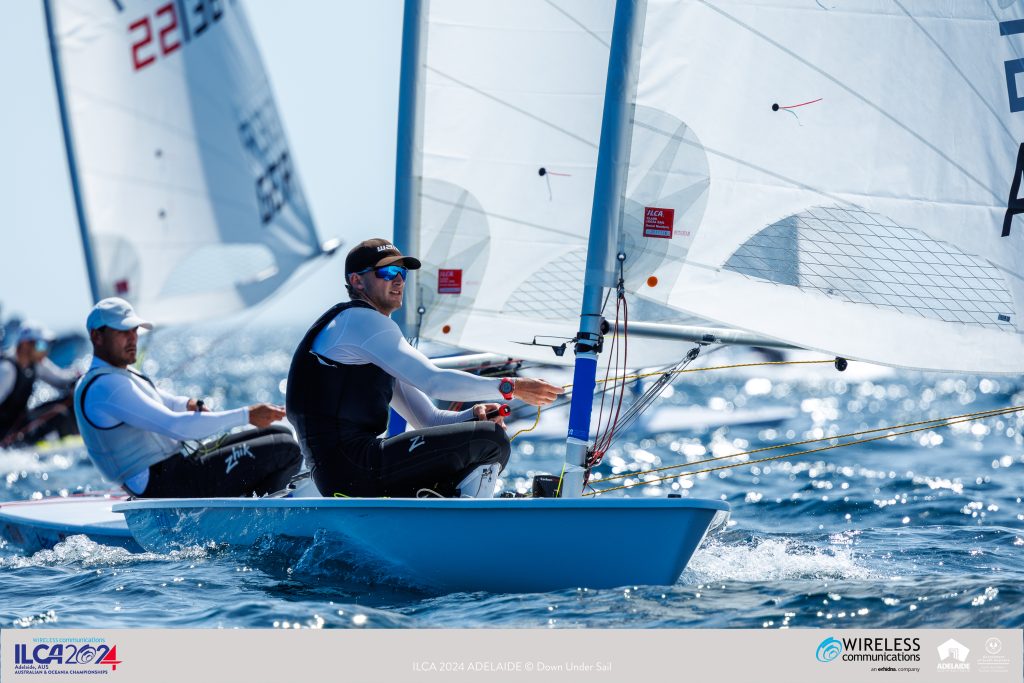
With an Australian & Oceania Championship leading into the worlds, we were interested to see how that changes the mind set of the Australian athletes, throw in the looming Paris 2024 Olympics and this event has a very different feel and dynamic for some nations and sailors.
“A little bit of a precursor, I think, like a warm up event. Just get comfortable in the boat, comfortable with conditions, comfortable with the fleet, and just get used to race in the same venue. Because, you know, training is totally different to racing. So to actually go through a regatta on the world’s venue, yeah, just the more time definitely helps for sure. And the boys, I think after what we saw yesterday, that was pretty random. So, we could get that for the Worlds, so it’s good, you’re just learning every day and then use that as knowledge for the world as opposed to prioritising results.”
Weather is always a major consideration in new venues, and the coaching team starts this preparation month in advance.
The Australian Sailing Team has been training in Adelaide for the last few months banking weather data and getting used to the different conditions and sea states.
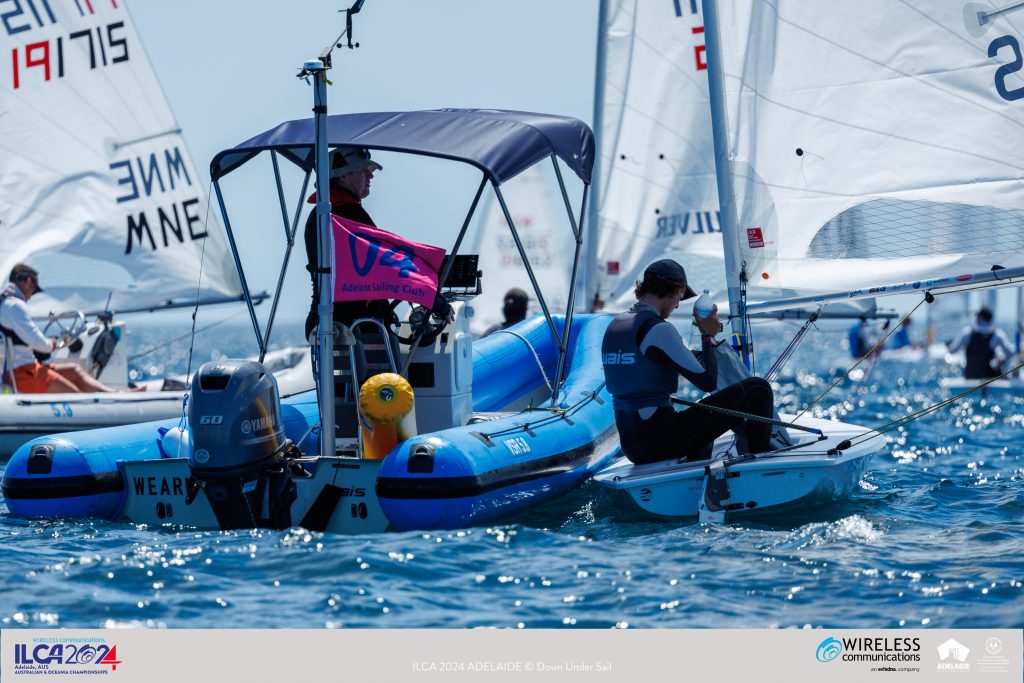
On water time is valuable, and even with a few weeks to go the sailors and coaches are still refining their data and expectations. Local knowledge can play a huge part in events like this, so trying to understand what the weather forecasts actually mean, and how that translates onto the race track is a dark art.
“So it’s all time on the water, cross-checking, you know, like, what the forecaster says and what we actually get can sometimes can be two different things. So it’s trying to get aligned with that as well. So then it’s more accurate by the time the world championships are on.”
But how do you prioritise these regatta’s with Paris around the corner, and what are the teams looking to get out of the Worlds?
“I think, like, with what we’ve got, like, in terms of Paris, that stands quite separate to this. The previous World’s only being a few months ago. Everyone sort of wants to see if, you know, the results that were produced a few months ago can be replicated here at the world championships. So it’s sort of like, who’s in form? What’s the form guide like for Paris? And then, you know, how we’re looking.”
“How the guys are sailing the boats, there’s not going to be any massive changes. Like everyone’s pretty locked in, happy with speed and stuff like that. But it’s sort of just more the tactical side of things, you know, the positioning, where boats sit can relative to us. And like I said before, the strategic game, you know, is the forecast true? Are we setting up best for that?”
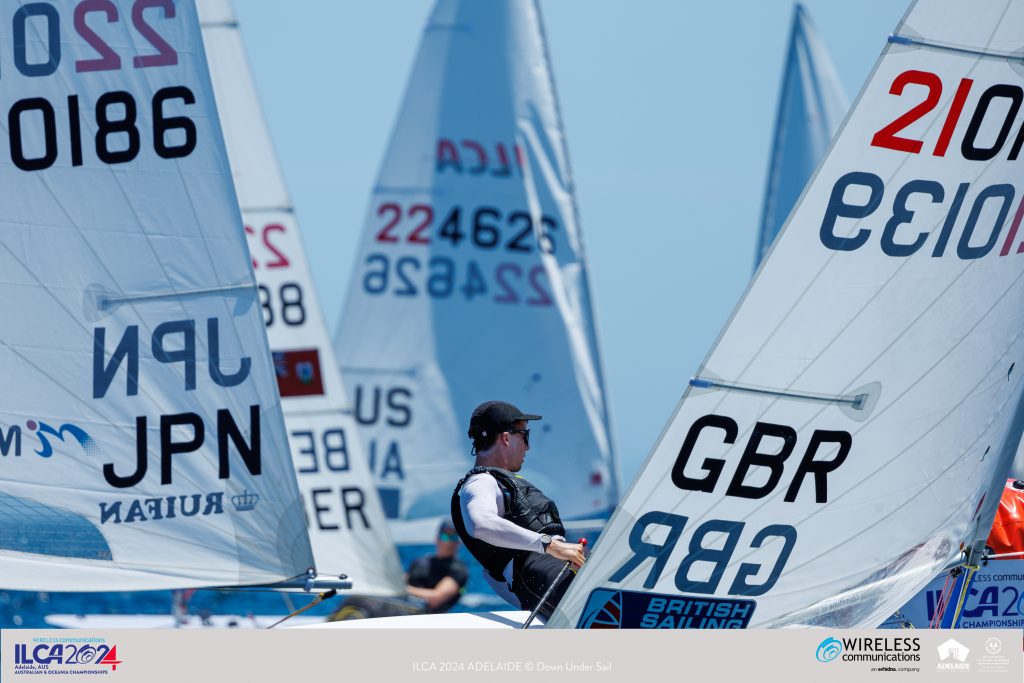
So far it’s been an interesting regatta with very changeable conditions and not much predictability, it’s really highlighted who can make decisions on the fly, and who is good at managing the risk. All key skills for major regattas in unknown venues.
The stakes will be high in a few weeks time for the World Championships, and we can’t wait to see how things play out over the next two days of the ILCA Australian & Oceania Championships.

